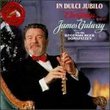| All Artists: Bryn Terfel Title: Silent Noon Members Wishing: 0 Total Copies: 1 Label: Deutsche Grammophon Release Date: 4/12/2005 Genres: Folk, Pop, Classical Styles: Vocal Pop, Opera & Classical Vocal, Historical Periods, Modern, 20th, & 21st Century Number of Discs: 1 SwapaCD Credits: 1 UPC: 028947753360 |
Search - Bryn Terfel :: Silent Noon
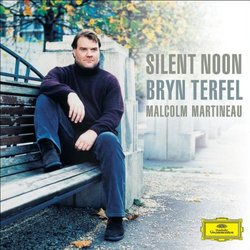 | Bryn Terfel Silent Noon Genres: Folk, Pop, Classical
Silent Noon is Bryn's Long-awaited Return to this Repertoire - with Songs Representing the Heyday of English Song in the Early 20th Century. · the Beauty and Colourfulness of this Music Which, at Some Points Almost So... more » ![header=[] body=[This CD is available to be requested as disc only.]](/images/attributes/disc.png?v=a4e11020) ![header=[] body=[This CD is available to be requested with the disc and back insert.]](/images/attributes/disc_back.png?v=a4e11020) ![header=[] body=[This CD is available to be requested with the disc and front insert.]](/images/attributes/disc_front.png?v=a4e11020) ![header=[] body=[This CD is available to be requested with the disc, front and back inserts.]](/images/attributes/disc_front_back.png?v=a4e11020) |
Larger Image |
CD DetailsSynopsis
Album Details Silent Noon is Bryn's Long-awaited Return to this Repertoire - with Songs Representing the Heyday of English Song in the Early 20th Century. · the Beauty and Colourfulness of this Music Which, at Some Points Almost Sounds Like Tunes from Musicals, have Everything to Appeal to Bryn's Fans. And this is all Thanks to that Gorgeous Voice and Character - These Songs Demand Great Communicative Power with a Wide Range from Humour to Sweet Elegy, and He is the Ideal Artist to Bring them to Life. Similar CDsSimilarly Requested CDs
|
CD ReviewsSilent Noon, Too big a voice MD | Greensboro, NC USA | 07/14/2005 (4 out of 5 stars) "Those familiar with Bryn Terfel could hardly argue that his physical and vocal presence is generally enormous! If we can travel back fifteen years to his early days at the Welsh National Opera, we would hear this enormous presence combined with delicate subtleness in the great character bass-baritone roles of Mozart such as Figaro, Masetto, and Leporello. An enormous open-throated voice combined with sensitive heart-felt interpretations have made Bryn Terfel the most celebrated and commanding baritone voice of his generation. Only in his early forties, Bryn Terfel has made legendary recordings of Don Giovanni, Le Nozze di Figaro, Falstaff, Elijah, and the Brahms Requiem. However, Opera megastars such as Bryn Terfel do not always portray art song well. This may be due to the intimate settings of art song, particularly English art song, and the mammoth instruments that try to interpret them. Let us speak of the Victorian English Art songs found on this CD. Many of these songs were written for the amateur singer to be performed at his/her home. Typically, accompaniments in this style are light and often lack inner voice movements. Many times they are chordal, and vocal lines often float on the fifth of a chord. These characteristics yield to very colorful, lyrical, and sensitive singing. The title track, Vaughan William's Silent Noon, ought to be one of the highlights of the disk. Instead, Bryn's voice is rather thin in color (maybe trying to blend with the light accompaniment) and we loose the intensity of the singing voice and the beauty of the vocal line. Generally lighter voices do not overpower accompaniments while maintaining the intensity in their singing. Very often they bring a more appropriate dynamic range to this subtle genre. Take a listen to Stephen Varcoe or Stephan Roberts; you'll see what I mean. On Terfel's latest album Silent Noon, the accompanist Malcolm Martineau plays wonderfully while trying to compliment the robust nature of Bryn's singing. Notable favorites on this disk include Roger Quilter Elizabethan songs and Arthur Somervell's rarely heard version of A Shropshire Lad. It is worth a spot on your collection but it should not be remembered as Bryn's greatest recording. " Bryn's best album Ashley D. Foot | Montreal, Canada | 04/14/2005 (5 out of 5 stars) "This album is a treasure. It will find a place in my collection forever. Gorgeous singing, gorgeous playing. Rarely will u hear such expressive singing. This album is flawless. Being English, Terfel infuses the texts with a moving, colourful immediacy that so many other singers lack in this repertoire. While many singers simply recite the songs as if the have sung them a million times. Bryn Terfel brings a new meaning to many of these oft sung ditties. The Roger Quilter songs I particularily treasure (Come Away Death, Weep You No More) and the A.E. Housman Shorpshire Lad is also very well sung.. Perfect recital disc." Great Album! J. L. Pike | Rochester, NY | 05/13/2005 (5 out of 5 stars) "For those of you who are true singers this is a must have! Terfel's interpretation of the music and text is among the best I have ever found. Contrary to what previous reviewers have said, Terfel voice has not thinned; on the contrary he has gotten stronger with age. What others do not realize is that different music automatically brings with it a different set of tone colors. The thing I find most appealing about this album is that Terfel has finally found that he doesn't need to be so plosive with his consonants. Because he has let that fade the music has become considerably more lyrical than it already was.
Again, this is a must have for any serious singer/music lover!" |

 Track Listings (33) - Disc #1
Track Listings (33) - Disc #1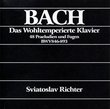


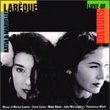
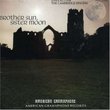
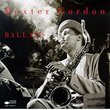

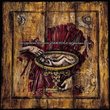



![Across The Universe [Deluxe Edition]](https://nationalbookswap.com/cd//m/51/1251/1241251.jpg)
